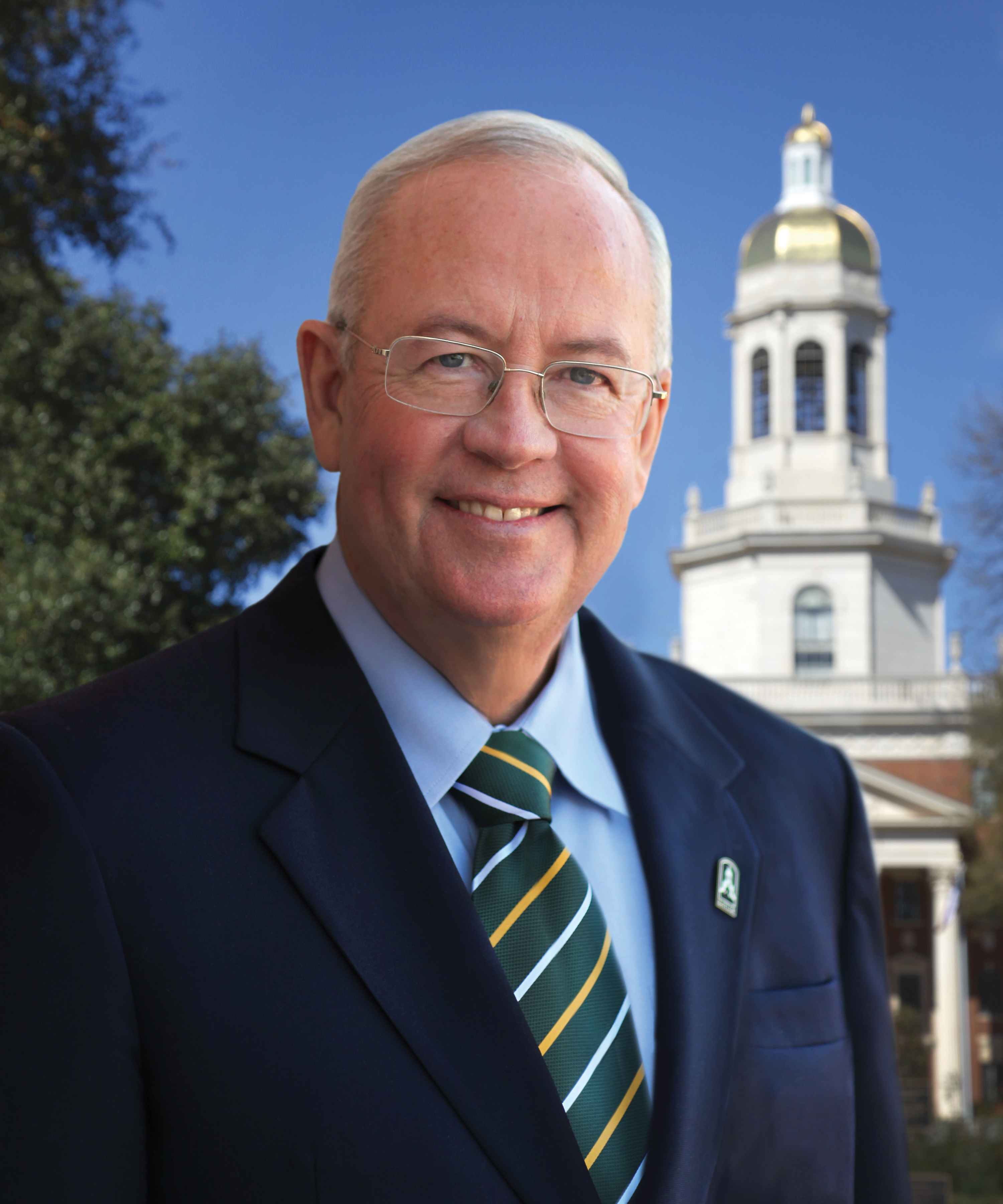President Starr Argues "Candy Cane" Case Before Fifth Circuit

Baylor University President Ken Starr was among two former U.S. Solicitors General who assisted the Liberty Institute May 23 in presenting oral arguments before the Fifth Circuit Court of Appeals in one of the nation's most important cases involving free speech.
Case will likely determine free speech rights of schoolchildren
Follow us on Twitter: @BaylorUMediaCom
NEW ORLEANS - Baylor University President Ken Starr was among two former U.S. Solicitors General who assisted the Liberty Institute today in presenting oral arguments in one of the nation's most important cases involving free speech. Known nationwide as the "candy cane" case, the outcome of Morgan v. Plano Independent School District will likely determine whether elementary schoolchildren have First Amendment rights under the U.S. Constitution.
The case was heard by all 17 judges on the Fifth Circuit Court of Appeals, sitting en banc, a rare occurrence reserved for cases of national impact.
According to the Liberty Institute, the case involves several students who were discriminated against because their speech was religious in nature, including a young boy who was singled out and banned from handing out candy cane pens with a religious message at his class "winter" party, a little girl who was threatened for handing out tickets after school to a religious play, and an entire class of kids who were forbidden from writing "Merry Christmas" on holiday cards to American troops serving overseas. On appeal, the government officials are now arguing that elementary students are too young to have First Amendment rights.
Judge Starr, former U.S. Solicitor General from 1989-93 under President George H.W. Bush, and Paul Clement, former U.S. Solicitor General under President George W. Bush, joined the Liberty Institute in arguing for the students.
Judge Starr stated in the argument, "This is 'cold on the docks' unconstitutional. We come in the spirit of Barnette v. West Virginia, that school districts have the responsibility to obey the law."
In a Liberty Institute video about the "candy cane" case, Judge Starr said, "For over a half century, the Supreme Court and other courts have held that schoolchildren have constitutional rights, especially the rights of freedom of speech, freedom of conscience, and that's what's at stake here. And so a ruling to the effect that schoolchildren don't have those rights would really represent, in my view, a very significant departure from settled law, and more than that, it just would give enormous power to schools and school districts in ways that are really incompatible with the spirit of liberty that informs a constitutional republic."
The Liberty Institute said that eight groups of diverse political views, from conservative groups to the ACLU, have filed briefs in support of the students.
Liberty Institute is a public policy and non-profit legal firm dedicated to protecting freedoms and strengthening families and specializes in First Amendment and Constitutional cases.
www.libertyinstitute.org.
-->
Audio of the oral argument will be posted online at http://www.ca5.uscourts.gov/OralArgumentRecordings.aspx.
ABOUT BAYLOR PRESIDENT KEN STARR
A distinguished academician, lawyer, public servant and fifth-generation Texan, Judge Ken Starr began his service as Baylor University's president on June 1, 2010.
Starr has argued 36 cases before the U.S. Supreme Court, including 25 cases during his service as Solicitor General of the United States from 1989-93. He previously served as U.S. Circuit Judge for the District of Columbia Circuit from 1983-89, law clerk to Chief Justice Warren E. Burger from 1975-77 and law clerk to Fifth Circuit Judge David W. Dyer from 1973-74. He was appointed to serve as Independent Counsel for five investigations from 1994-99. He practiced law and was a partner at the firms of Gibson, Dunn & Crutcher LLP (1974-1981) and Kirkland & Ellis LLP (1993-2010).
Before joining Baylor, Starr served six years as dean and professor at the Pepperdine University School of Law, where he taught Current Constitutional Issues and Civil Procedure. He taught Constitutional Law for 13 years at New York University School of Law, George Mason University School of Law and Chapman Law School. He currently is The Louise L. Morrison Chair of Constitutional Law at Baylor Law School.
Starr earned his BA from George Washington University, an MA from Brown University and his JD from Duke University Law School.
Judge Starr has published more than 25 articles and authored a book in 2002, First Among Equals: The Supreme Court in American Life. His honors include the Attorney General's Award for Distinguished Service, the Edmund Randolph Award for Outstanding Service in the Department of Justice, the Jefferson Cup Award from the FBI, and the J. Reuben Clark Law Society 2005 Distinguished Service Award.
Media contact: Lori Fogleman, director of media communications, (254) 710-6275